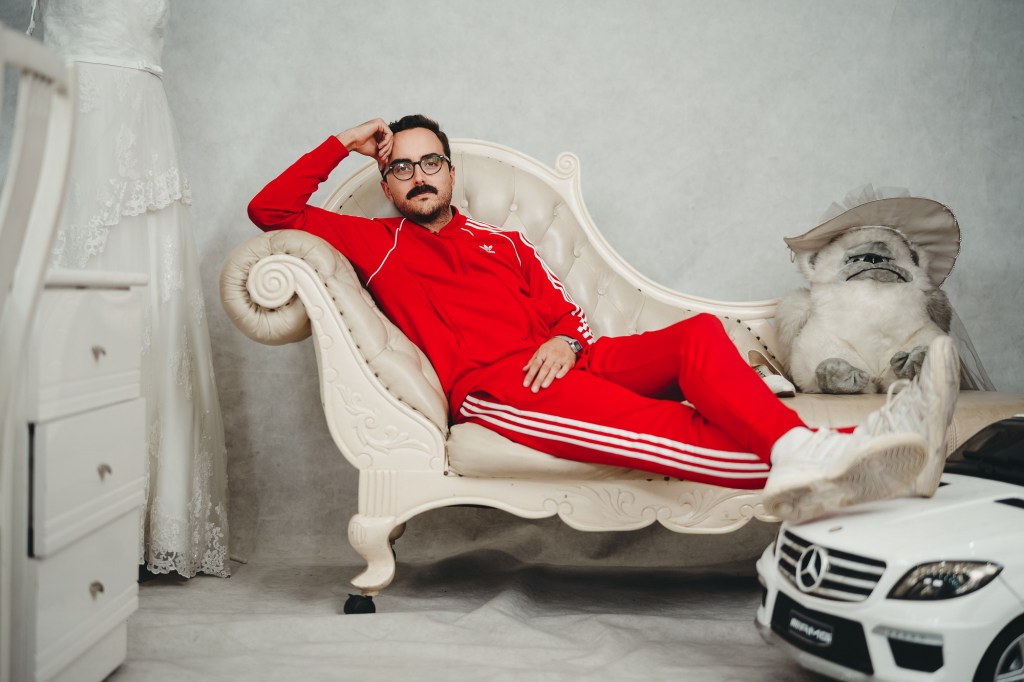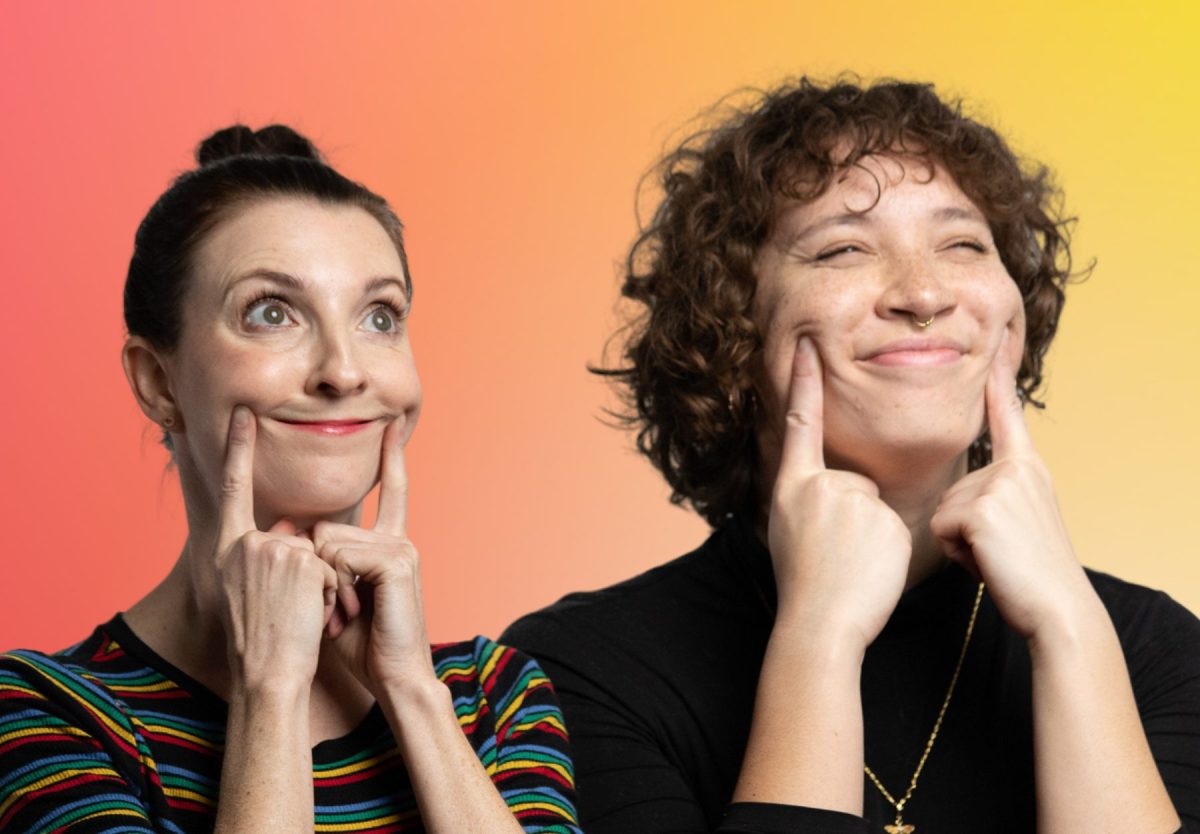Great comedy often looks effortless on stage, but building a career requires reserves of perseverance and a capacity for hard work.
Cameron James, a stand-up comedian and Head Writer on SBS’s The Feed, says that there are a lot of unpaid gigs on the way to the top, even for seasoned, high-profile comics: ‘Almost your entire career is showing up somewhere for no money and no audience, trying out new jokes, and knowing that, on some level, it’s training for when you finally do get to do the good gig.’
Sydney comedian Alex Jae, whose writing room credits include Saturday Night with Rove, has also found working for free comes with the territory. ‘It would be cool if everything was paid but that just isn’t feasible. There’s no way around it; you’ve got to do the little [gigs],’ she said.
The smaller line-up shows (typically featuring several comedians, each performing for a few minutes) may be unglamorous and often take place in locations ill-suited to comedy. But they serve an invaluable role in helping comedians get comfortable on stage and refine their work. While a writer or visual artist may get their 10,000 hours before ever entering the public sphere, comedians simply have to do the work in public to get good.

Small-time gigs can also be a great way for comics coming into the scene to talk shop and connect with their peers. ‘“Networking” is a yucky word but [the stand-up shows] are where you meet people who can give you opportunities in writers’ rooms or on podcasts,’ said Jae.
Newcastle native Cameron James studied film production at university but found that didn’t get him anywhere in terms of getting work on screen. ‘It’s all been from doing stand-up and having people like Wil Anderson see me and have my back, or having Michael Hing see me and recommend me. It’s taken the place of my resume,’ he said.
Podcasts and other opportunities
Podcasts have become increasingly crucial for anyone looking to make comedy their career.
For emerging comedian and filmmaker Bea Barbeau-Scurla, there are mixed feelings around the ubiquity and quantity of comedy podcasts. ‘On the one hand, I don’t want to hear about another comedian starting a podcast. But on the other hand, I think it’s the only way to weasel [yourself] into the collective consciousness of who’s creating content. When I had my podcast [Were You Hot in High School?]with Lauren Bonner, it opened up way more opportunities than I ever thought a podcast could,’ Barbeau-Scurla said.
James and Jae both believe the bulk of the audience for their festival shows became interested in their work through podcasts. James had a runaway hit with the Finding Drago podcast with Alexei Toliopoulos and remains heavily involved in the scene. ‘I can’t stress enough how much I love the podcast community,’ he said. ‘It’s changed my life.’
Watch: Artists Essentials Toolkit #11: Making a podcast
With almost no barriers to entry, podcasts allow comedians to create the kind of content they want and see if it finds an audience. Similarly, if comedians can’t find the sort of comedy rooms they wish to perform at, they can always create their own.
Daniel Muggleton has been performing stand-up since 2012 and is taking his new show, White & Wrong (But Mostly White), to Melbourne this year. He’s also run a number of comedy rooms in Australia, the United Kingdom and even online during the lockdowns. ‘It’s always been pretty organic rather than a calculated effort,’ Muggleton said of his guise as a room runner. ‘It’s like “this is what I want there to be,” so instead of waiting for someone else to do it, I’ll just do it.’
Barbeau-Scurla runs the inclusive comedy night, Rat Klub, and has found it a tiring but worthwhile endeavour. While it may help get her name out there, she says that’s not her main motivation. ‘I wanted to create a space to give an opportunity for younger comics, especially post-pandemic … There’s not a lot of opportunities for young comics to do a fun, exciting room with an attentive audience. [Running a room] can help your career in some ways, but it’s more for the community aspect rather than levelling up,’ she said.
Muggleton is an instantly recognisable figure for punters, thanks to his trademark red Adidas tracksuit. He initially started favouring tracksuits for comfort while travelling hours on trains to far-flung gigs in the United Kingdom. But it’s given him a point of difference, a valuable (if initially inadvertent) career move in a scene where it’s hard to stand out among literally hundreds of comics at a festival the size of Melbourne: ‘In this country, it’s like a sea of white dudes all around six foot, with collared shirts and moustaches – they’re everywhere!’

Versatility is also a must for any Australian comedian looking to build a long-term career. With Australia’s relatively small population, few comics can make a living purely from stand-up, but there are opportunities to use comic writing or performing skills in other forums, Jae explained.
‘People selling out theatres can make a living, but for everyone else, we have day jobs or writers’ room gigs, radio or tv,’ she said. ‘You’ve got to have your fingers in a few pies.’
Read: How to write a comedy show: 24 comedians reveal their secrets
Making the leap to a solo festival show
One of the trickiest career phases for a young comedian to navigate is the question of when to start doing full-length festival shows. ‘This industry really tries to push young people to the front of stage as quickly as possible,’ said James. ‘There’s something very attractive about new talent’. He believes now that he was only ready for a full-length show when he already had four festival cycles to his name.
Barbeau-Scurla makes her Melbourne debut this year, doing a split show with former RAW Comedy state finalist Fiona Cox. ‘You halve the costs and the emotional labour by doing a split bill, and I reckon I’ll have a better idea of when to do the solo show after that run,’ she explained.
For Jae, doing her second solo Melbourne International Comedy Festival show this year (titled Totally Fine if Not), the cancellation of the 2020 iteration of the festival was something of a relief as it gave her longer to build up a full hour of material.
Jae said the step-up to an hour was daunting but also had a lot of creative upsides. ‘It is scary because you’re used to doing ten minutes, and then you’re doing 50 or 60 minutes. But it was awesome at the same time because you can relax into it; you’ve got much more time to connect with the audience.’
Read: An overnight comedy success after nine years work
Improving your work is a vital but complex part of any comic’s career and, as Muggleton describes it, something of a balancing act. ‘It’s so important to realise you’re just shit [at comedy] for a while. It’s tough because it’s very important not to think you’re too shit, or you’ll quit. It’s also very important not to think you’re too good because then you won’t improve and you won’t go anywhere,’ he explained.
There are more prosaic elements to building a career in comedy, like learning to tolerate long stretches on the road. Does Muggleton enjoy being away from home so often?
‘Enjoy is a strong word,’ he sighed. A veteran of university orientation week tours, he now finds the travelling experience much more agreeable. ‘My wife comes down [to Melbourne] sometimes, and that’s the best. She forces me to live like a human being as opposed to a weird cockroach hiding in the hotel and just going to the gig.’
Enjoy the ride
Ultimately, the best career advice may be counter-intuitive: don’t be too careerist. All four comedians who spoke to Arts Hub saw immense value in watching other comics, supporting your peers, finding good collaborators, and creating your opportunities instead of waiting for them.
James said his best advice for those entering the industry is simply to make friends, a sentiment Jae agrees with. ‘Talk to as many comedians as you can,’ she advised. ‘Most of them are really cool, and it’s a beautiful community’.
Barbeau-Scurla jokes that opening for A-listers like Wil Anderson and Geraldine Hickey made her friends jealous but says comparing your career progress to your peers is a trap. ‘No matter what level [you’re at], try to focus on yourself and make sure that you’re having fun the entire way. Success doesn’t mean anything if you’re not enjoying yourself.’
Melbourne International Comedy Festival is on now until 24 April. Sydney Comedy Festival runs from 25 April – 22 May, Brisbane Comedy Festival from 29 April – 29 May and Perth Comedy Festival from 29 April – 15 May.





